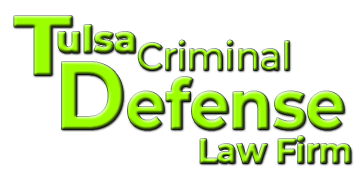Cross-Examination: A Critical Component of a Good Defense

Cross-examination in a criminal trial allows both the defense and prosecution the opportunity to challenge the credibility and reliability of witnesses presented by the opposing side. Effective cross-examination techniques can significantly impact the trial’s outcome. Effective cross-examination of prosecution witnesses can weigh heavily in a jury’s verdict. This article outlines effective cross-examination strategies and techniques in general and under Oklahoma law.
Understanding Key Techniques in Cross-Examination
Perhaps the most important preparation for trial counsel involves knowing the case facts, legal issues, and the witness’s prior statements or testimonies. This is true in both direct examination and in cross. You must try to predict how a witness might respond to questions and prepare follow-up questions that highlight inconsistencies in the witness’s statements or between their testimony and other evidence. Preparation is key to being able to quickly identify areas of inconsistency.
It is imperative to control the witness at all times if possible. We all know the old adage, “Never ask a question of a witness to which you do not know the answer.” In other words, control the witness and the narrative. Juries hang on to the narrative and the witness is the vehicle for that narrative. Use leading questions that suggest the answer and limit the witness’s ability to provide lengthy explanations. For example, “You saw the defendant at 10 p.m., correct?”
Keep questions short and to the point to maintain control and avoid giving the witness room to elaborate. Aim for questions that elicit yes or no answers to keep the witness on track and on narrative.
It is important to use cross effectively to impeach a witness for the opposition. Use prior statements, documents, or deposition testimony to impeach the witness if they contradict their current testimony. For example, if a witness testifies that they were at a particular location at a specific time, you may use a text message sent by the witness stating that they were in fact in another location at the time to contradict their prior statement.
You may also expose any potential biases or motives the witness may have for testifying in a certain way. This goes toward credibility.
Depending on the circumstances, you may also question the witness’s character for truthfulness if there is a basis to do so, such as prior dishonest behavior. However, there are limitations regarding the use of character evidence under Oklahoma law.
The credibility of a witness may be attacked or supported by evidence in the form of opinion or reputation, subject to these limitations:
- The evidence may refer only to character for truthfulness or untruthfulness; and
- Evidence of truthful character is admissible only after the character of the witness for truthfulness has been attacked. (Okla. Stat. tit. 12 § 2408.)
Develop a theme, story or theory of the case that guides your cross-examination. This helps create a coherent narrative for the jury and reinforces their memory of key points of testimony.
Strategies for Effective Cross-Examination
Effective cross-examination begins before the actual cross begins. Be polite and professional to maintain credibility with the jury and avoid alienating them. Maintain a confident demeanor to assert control over the examination.
Control the pacing of the questioning to keep the witness and jury focused on your points. If your questions are too quick in succession, you risk losing the jury. Too slow, you risk putting them to sleep. Use varied tone and emphasis to highlight important points and keep the jury engaged.
Be prepared to adapt your strategy based on the witness’s answers and the flow of the trial. Your prior preparation allows you to pivot quickly when needed to follow up on unexpected answers to explore new lines of questioning that may benefit your case.
If a witness is providing harmful testimony, steer the questioning away from topics where they can cause the most damage. Instead, redirect the focus to inconsistencies or less damaging areas of the witness’s testimony.
It is important to end your cross on a high note. End your cross-examination on a strong and impactful note to leave a lasting impression on the jury. If you are able, summarize or emphasize key points that support your case theory.
Legal Framework and Rules in Oklahoma
The Oklahoma Evidence Code governs cross-examination. Cross-examination is limited to the subject matter of the direct examination and matters affecting the witness’s credibility. (Okla. Stat. tit. 12 § 2611.) However, the court has the discretion to permit inquiry into additional matters as if on direct examination. Any party, including the party that called the witness, to attack a witness’s credibility. (Okla. Stat. tit. 12 § 2607.) There are additional rules and guidelines for examining witnesses about prior statements and the admissibility of extrinsic evidence of a prior inconsistent statement.
Attorneys must adhere to ethical standards, ensuring that cross-examination remains fair and respects the dignity of the witness. That means remaining calm and clear during cross-examination is key. You must try to elicit needed testimony without harassment or undue time consumption.
Examples of Cases Involving Cross-Examination
Cross-examination issues have been litigated in various Oklahoma criminal cases. Here are several examples.
Impeaching the Witness with Prior Inconsistent Statements: Smith v. State, 2009 OK CR 24, 207 P.3d 1048 (Okla. Crim. App. 2009).
In this case, the defendant was convicted of robbery. The prosecution’s key witness had given multiple statements to the police, some of which were inconsistent with her trial testimony. The defense effectively used prior inconsistent statements to impeach the witness. The defense attorney highlighted discrepancies between the witness’s statements to the police and her testimony in court, casting doubt on her reliability. The jury’s perception of the witness’s credibility was significantly impacted, which played a role in the defendant receiving a lesser sentence than might have otherwise been imposed.
Exposing Bias or Motive: Turner v. State, 2011 OK CR 14, 270 P.3d 1123 (Okla. Crim. App. 2011).
Here, the defendant was charged with assault. The key witness had a personal relationship with the victim and had a potential motive to testify unfavorably against the defendant. The defense attorney focused on exposing the witness’s bias by questioning him about his relationship with the victim and any benefits he might receive from testifying against the defendant. By revealing the witness’s potential bias, the defense was able to diminish the impact of his testimony, leading to reasonable doubt among the jurors about the defendant’s guilt.
Highlighting Inconsistencies in Testimony: Johnson v. State, 2014 OK CR 12, 332 P.3d 994 (Okla. Crim. App. 2014).
The defendant was on trial for burglary. The prosecution’s witness provided testimony that was inconsistent with physical evidence presented in the case. The defense attorney meticulously pointed out inconsistencies between the witness’s testimony and the physical evidence, such as discrepancies in the timeline and location details. The jury found the inconsistencies significant enough to question the overall reliability of the witness’s account, contributing to the defendant’s acquittal.
Cross-examination is a powerful tool in Oklahoma criminal trials that can significantly influence the jury’s perception of the evidence and witnesses. Effective cross-examination requires meticulous preparation, strategic questioning, and the ability to adapt to the dynamics of the courtroom. By understanding and utilizing these techniques and strategies, attorneys can effectively challenge opposing witnesses and strengthen their case. Your Tulsa criminal attorney can help you understand more fully how cross-examination may help your case.
Consult with a Tulsa Criminal Defense Attorney
The Tulsa Criminal Defense Law Firm prides itself on zealously representing our clients. Call today at 918-256-3400. We can provide personalized guidance based on your unique situation.
We are dedicated to providing reliable legal advice and representing clients throughout the criminal process. Together, we can navigate the complexities of the criminal court process and work towards a positive outcome.
